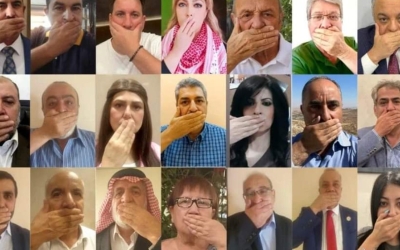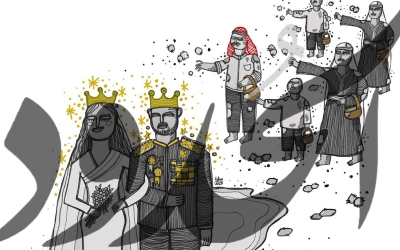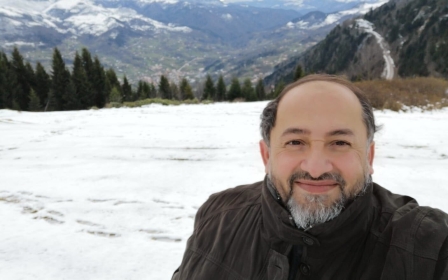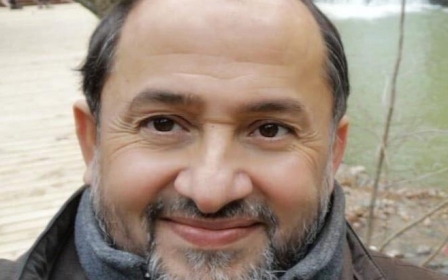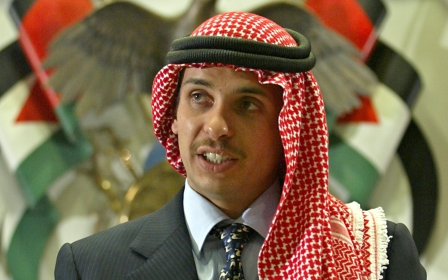Jordan king ratifies cybercrime law as journalists prosecuted for social media posts
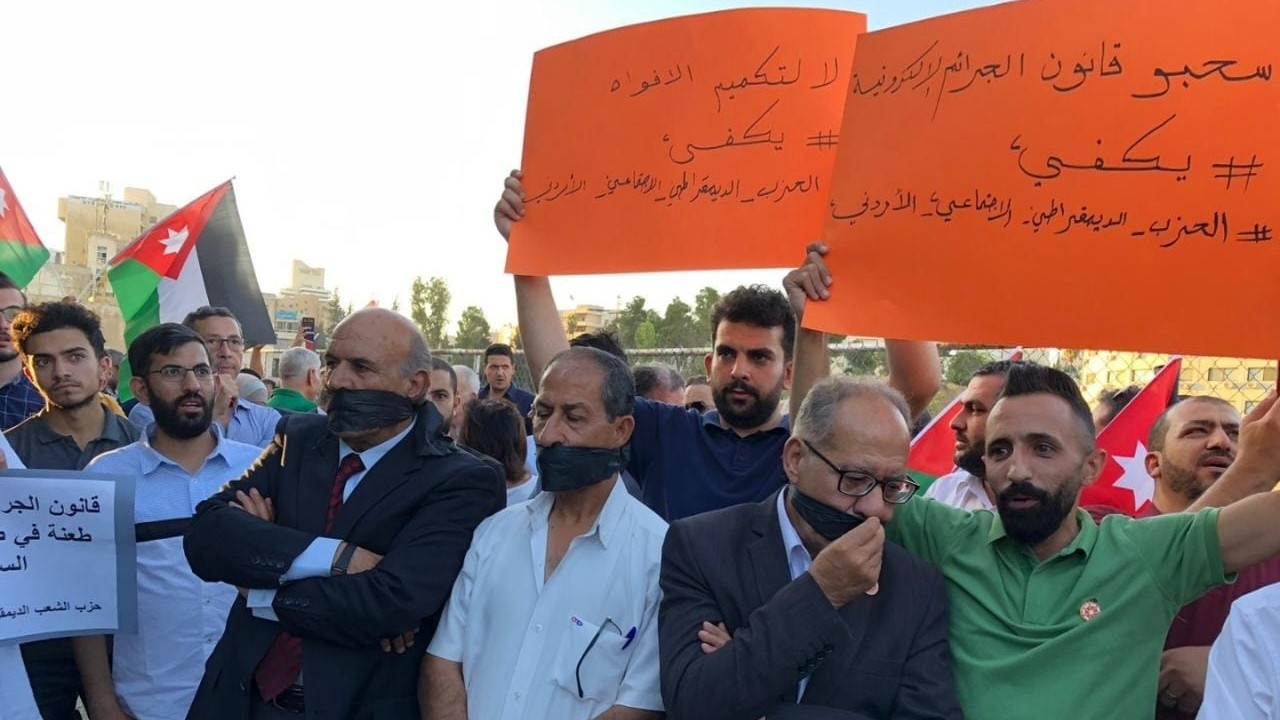
Jordan's King Abdullah II approved a controversial cybercrime law on Saturday that has been decried by rights groups and journalists as an attack on free speech.
The bill had been passed by both houses of parliament on Tuesday, as authorities cracked down on journalists and writers over posts on social media.
Rights groups have denounced the "draconian" bill for using "imprecise, vague and undefined terminology" such as "fake news", "promoting, instigating, aiding or inciting immorality", "online assassination of personality", "provoking strife", "undermining national unity" and "contempt for religions".
The law introduces a range of stringent regulations that carry the potential for imprisonment or substantial fines. Notably, the law takes aim at the utilisation of Virtual Private Networks (VPNs) - tools enabling users to bypass restrictions and conceal their identities - with violations carrying penalties of up to six months of incarceration.
Furthermore, the law encompasses provisions that define criminal charges for actions such as "undermining national unity" and "online character assassination", terms that critics caution are vague.
New MEE newsletter: Jerusalem Dispatch
Sign up to get the latest insights and analysis on Israel-Palestine, alongside Turkey Unpacked and other MEE newsletters
Comprising a total of 41 modifications, these amendments to the 2015 cybercrime law grant authorities the option to block social media platforms, impede website functionality and empower the state to request the removal of specific posts.
The law has been passed against the backdrop of several prosecutions of outspoken journalists and writers, including Jordanian satirist Ahmad Hassan al-Zouabi. An appeals court on Wednesday confirmed the detention of Zouabi over a post he wrote on Facebook last year in which he criticised the government's failure to address the rising fuel prices.
The post read: "Why must the blood of our sons be shed before you acknowledge the situation? Must blood flow before petrol prices recede? Lives have been lost, dear Mr Minister. We are the fuel that keeps your flames burning."
'With the newly amended cybercrime law, there will be a massacre of the freedom of expression'
- Ahmad Hassan al-Zouabi, Jordanian satirist
The court ruled that Zouabi "incited sectarian and racist strife" and "incited conflict between the components of the nation".
Following the verdict, Zouabi told Middle East Eye that his case is an example of the government's targeting of dissidents and critics.
"There is no freedom of expression in Jordan today," he said. "Writers are becoming afraid of expressing themselves in simple ways. With the newly amended cybercrime law, there will be a massacre of the freedom of expression."
His attorney, Louay Obeidat, informed MEE that Zouabi faced legal action due to his critique of the government's December move to increase energy prices. Obeidat stated that his client "employed a literary style to ironically articulate the widespread disapproval of governmental choices, a role inherent to journalists who dutifully mirror public sentiment".
An official Jordanian source told MEE that Zouabi's case "has nothing to do with the new cybercrime law" because it had not been implemented at the time of the ruling. He added that the law did not specify public officials in the context of criminalising particular forms of speech.
However, journalist Hiba Abu Taha was briefly detained on Tuesday on charges of writing an online post against King Abdullah. Her charge was "defaming an official institution", based on Article 191 of the Penal Code and Article 15 of the Cybercrime Law.
Abu Taha was sentenced to three months of imprisonment and was also fined.
Abu Taha told MEE she was surprised that a post she published on Facebook brought a charge of defaming an institution even though the king is not an institution according to article 191. Instead, if they wanted, "they could have charged me with defaming the king (article 195) of the same penal code".
King Abdullah II issued a special pardon in 2021 for all those charged with defaming him. Abu Taha was surprised why the district attorney chose to avoid this charge and, on that basis, she had appealed the decision of the lower court.
Likewise, the publisher of the news website AllofJordan Khaled Al Majali was arrested on 26 July on charges of defaming an official body according to article 191 of the Penal Code.
He was sentenced to three months because he ran a live broadcast in which he used a derogatory word that means the "government is not serious", his lawyer Zeid Al Majali told MEE.
Furthermore, Jordan's appeals court on Wednesday confirmed a decision to imprison Dr Ibrahim Mansi, the coordinator of the Popular Campaign to Protect the Holy Koran, for four months. The charge stemmed from a complaint by the Minister of Waqf on the basis of Mansi's criticism of the Waqf ministry for closing down Quranic Learning centres in 2022.
Against the backdrop of prosecutions of journalists, in a last-minute initiative before the king's ratification of the law, 14 civil society organisations reminded the king of his proclaimation that "the sky is the limit for press freedom", urging him, rather unsuccessfully, to refrain from endorsing the revised cybercrime law.
'Keep silent'
The legal framework in Jordan is replete with ambiguous terms like "undermining the system of government", "verbal defamation", "changing the structure of society", and "provoking regional strife". These imprecise terms have been linked to the apprehension of numerous political activists and journalists, who found themselves detained following the expression of their views on social media or participation in peaceful sit-ins.
The newly amended cybercrime law introduces provisions allowing the detention of individuals prior to judicial review. Additionally, it places the legal responsibility for comments on social media pages upon their owners. Despite public protests, the parliament has proceeded to endorse this contentious legislation.
During the parliamentary debate on 27 July, Prime Minister Bisher Khaswaneh, speaking on behalf of the Jordanian government, asserted that "the cybercrime law will unequivocally uphold the constitutionally guaranteed right of expression".
Khaswaneh stated: "The core of freedoms is founded on the right to safeguard all Jordanians. The government's proposals do not infringe upon the constitutional equilibrium. They establish the balance of rights as stipulated in this legislation."
Independent MP Omar Aiasra views the law as not directed towards journalists. He explained to MEE that the law seeks to "regulate" social media.
He added: "There exists a significant faction of demagogic activists willing to disrupt everything. The cybercrime law targets this unruly faction that exploits social media."
"The objective is not journalists. These individuals have transformed constructive criticism into injurious remarks."
Yanal Freihat, an Islamist opposition MP, disagreed with Aiasra.
In a conversation with MEE, Freihat said: "The intention is to cultivate a climate of police control. We seem to be heading towards constriction of any expression that does not align with the preferences of those in authority. The recent arrests unmistakably convey a message to the people of Jordan: keep silent."
Middle East Eye delivers independent and unrivalled coverage and analysis of the Middle East, North Africa and beyond. To learn more about republishing this content and the associated fees, please fill out this form. More about MEE can be found here.


